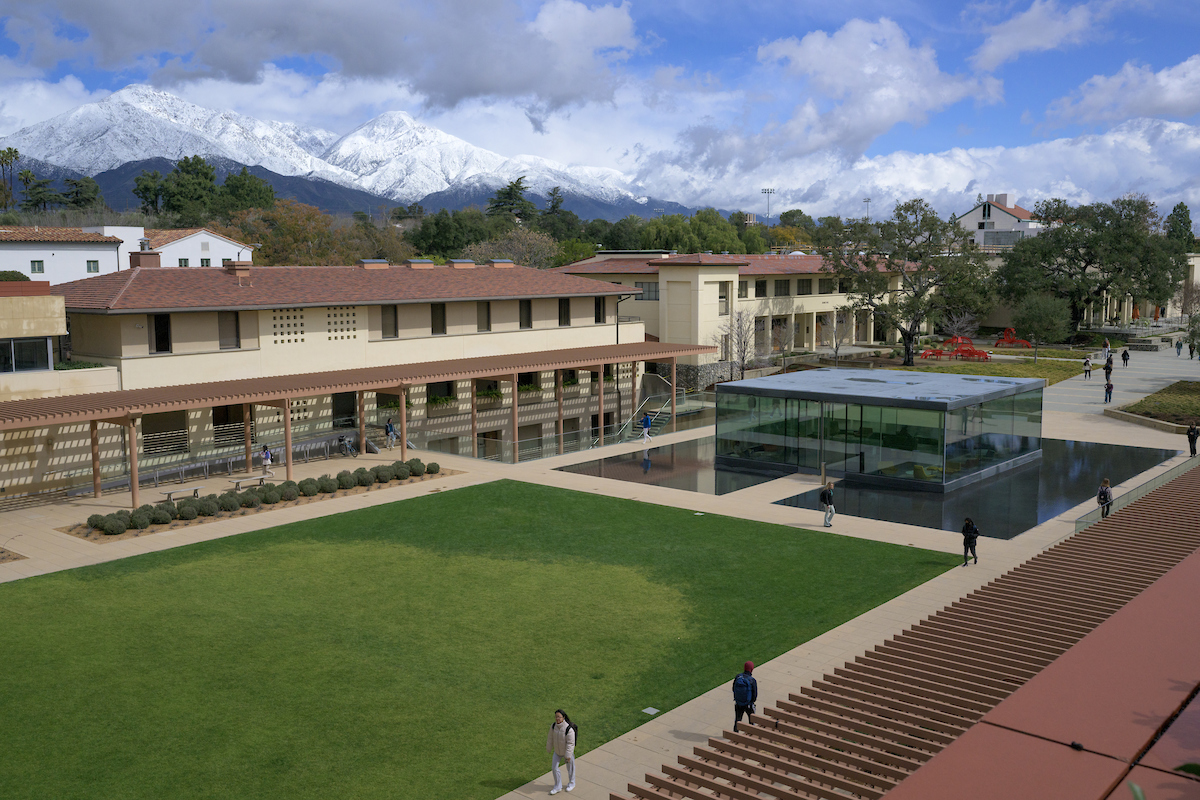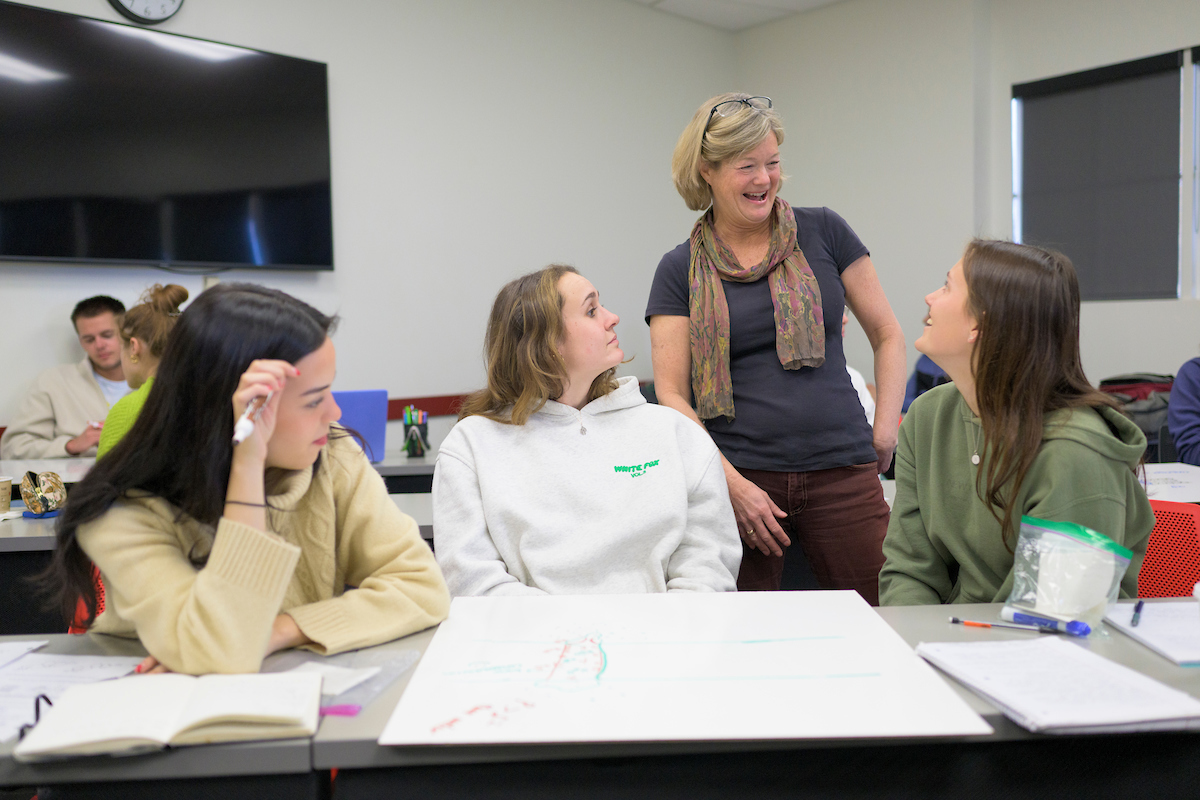History
Claremont McKenna College, one of the nation’s top liberal arts colleges, prepares students to make a difference. Since 1946, Claremont McKenna College’s mission has been to prepare students for thoughtful and productive lives and responsible leadership in business, government, and the professions. The College attracts a student body that is broadly diverse and accomplished beyond the classroom.
Located on a scenic, tree-lined residential campus 30 miles east of Los Angeles, Claremont McKenna is a member of The Claremont Colleges, a seven-college consortium modeled after Oxford University. CMC students choose from more than 2,200 classes and participate in co-curricular activities with 7,000 other students at Harvey Mudd College, Pitzer College, Pomona College, and Scripps College, as well as the Claremont Graduate University and Keck Graduate Institute. Students have the best of both worlds: the intimacy of a small residential college with small classes and a student-faculty ratio of nine to one, and the shared resources of a larger research university.
Renowned for expertise in economics and government, Claremont McKenna features accomplished scholars who are committed teachers in the humanities, sciences, and social sciences. The school is distinguished by eleven world-class research institutes. Exceptionally high numbers of undergraduate students conduct research with professors and get to know them as colleagues.
The College emphasizes the integration of leadership and innovation experience within institutes, student enterprises, on-campus fellowships, and sponsored off-campus internships.
More than 90% of students complete internships and nearly half study off-campus during their four years. The College’s Marian Miner Cook Athenaeum brings world-class leaders, thinkers, artists, and visionaries to speak publicly, engage in small group discussions, and dine with students. Consistently one of the top NCAA Division III programs in the nation, the Claremont-Mudd-Scripps athletic department is housed in the state-of-the-art Roberts Pavilion fitness and event center.
CMC’s Student Opportunity Center provides all students with advising, mentoring and networking support that is tailored to each student’s professional goals. Many Claremont McKenna graduates go on to receive prestigious post-graduate fellowships and degrees in business, law, medicine, and many other fields. CMC alumni thrive in a wide range of careers including consulting, education, financial services, government and public policy, media and entertainment, medicine, nonprofit leadership, science, and technology. Claremont McKenna excels nationally in post-graduate job placement and satisfaction, salaries, and career success.
Mission
Claremont McKenna College’s mission is to prepare students for thoughtful and productive lives and responsible leadership in business, government, and the professions.
Principles
Claremont McKenna College is committed to a liberal arts education that emphasizes economics and political science with integrations of the social sciences, natural sciences, and humanities; promotes faculty and student scholarship that contributes to intellectual vitality and a deeper understanding of public policy issues; provides scholarly support for a faculty of teacher-scholars dedicated to undergraduate teaching and close student-teacher relationships; fosters open, critical inquiry through an engaged intellectual program, including the research institutes and centers and the Athenaeum; sustains a residential community where intellectual engagement, civic leadership, recreation, athletics, and career development are essential elements of student life; and champions freedom of expression, viewpoint diversity, and constructive dialogue through The Open Academy, as well as institutional neutrality.
Motto
Crescit cum commercio civitas.
“Civilization prospers with commerce.”
Learning Goals
The learning goals of a CMC education are to teach students transferable abilities including analytic skills, communication skills, and critical thinking skills, and to impart intellectual breadth and preparation for responsible leadership and citizenship through exposure to a variety of academic disciplines. Within the broader context of the College’s unique mission, each major discipline at CMC has set its own learning goals including substantial knowledge of the chosen field of study with identified student learning outcomes for assessment and evaluation. The faculty at CMC has established the following student learning outcomes for graduates which form the basis for assessment of the College’s general education program:
- Graduates will be able to critically analyze a particular issue, problem, or idea in depth and consider its elements.
- Graduates will be able to express themselves clearly, coherently, and convincingly both orally and in writing.
- Graduates will employ critical thinking and information literacy skills to complete projects that require integrating ideas and information from various sources.
- Graduates will be knowledgeable about the attributes of responsible leadership.
- Graduates will be able to effectively interpret, process, and analyze quantitative information and claims, as well as apply quantitative reasoning in appropriate contexts, such as data collection, decision making, and problem solving.
Accreditation
Claremont McKenna College is accredited by the WASC Senior College and University Commission (WSCUC). WSCUC is recognized as an institutional accrediting agency, and reviewed periodically for renewal, by the US Department of Education and the Council for Higher Education Accreditation (CHEA). WSCUC accreditation aids institutions in developing and sustaining effective educational programs and assures the educational community and the general public that an accredited institution has met high standards of quality and effectiveness.
|